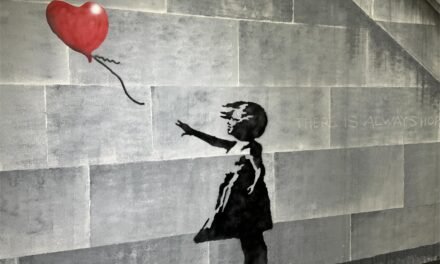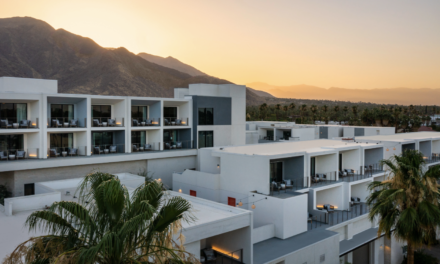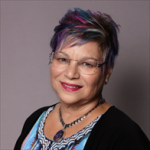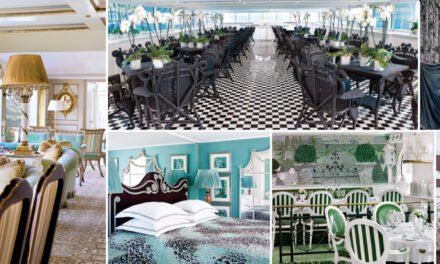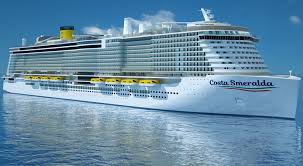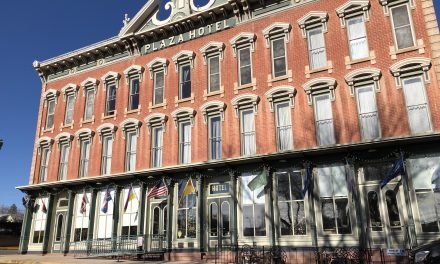
Cruise Passengers and Crew are Condemned to Remain at Sea
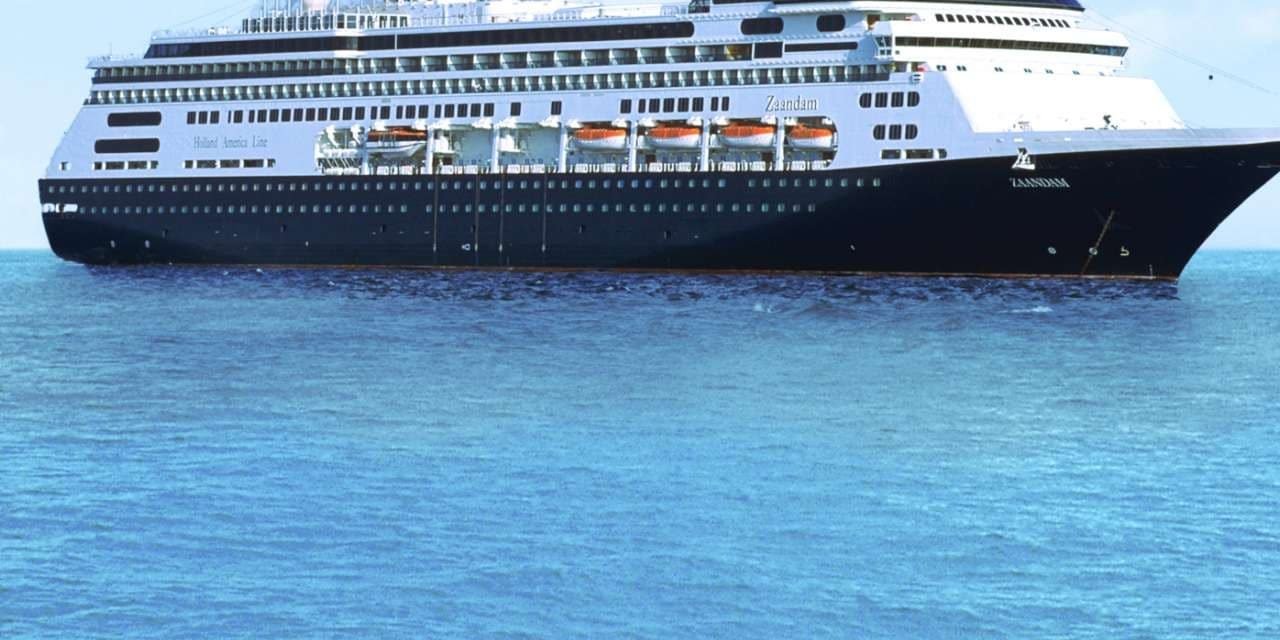
In general, a journalist does not simply take an open letter to use as the basis of an article or column.
Having been in the travel industry for many decades, we always think that we have seen it all..however, that is not the case. Each day, it seems to make things worse and worse for those who are stranded at sea, with no one willing to throw them a life preserver in the most literal sense. It is beyond my understanding that countries and people can so callously deny a safe port and just follow whatever protocol that is deemed the safest.. for the passengers and crew on board these ships. This borders on illegal confinement.
How can we allow spring break students, Mardi Gras revellers and those fleeing from Covid-19 hotspots to return home or seek refuge somewhere else with unfettered access to choose where they go, and no mandatory oversight, while refusing to allow a safe harbor to unwitting passengers and crew on cruise ships? Is the question, who should pay? Is it who is going to pay to oversee this effort? Is it simply “not in my backyard?” While many of these ships have “flags of convenience” most of the passengers are North American. How can we turn our backs on our own citizens, and most are senior citizens!
Since I started this piece, things have gone from bad to even worse as the cruise ships are still stranded at sea as entry restrictions tighten with border closures and diminishing healthcare resources amid the coronavirus pandemic.
Carnival Corp. has indicated that it has at least 6,000 passengers still at sea on its various cruise lines. This is the same line that had offered their docked ships in the US to serve as hospitals and accommodation for those non covid-19 patients and front line professionals.
Holland America’s Zaandam and Rotterdam were given false hope as they are still among the ships that have so far been denied docking in Florida. More than 2,700 passengers and crew are onboard the two ships, including 248 Canadians.
COVID-19 is a test of our collective humanity
As of today, Florida has now refused to let the ships dock, with Florida Governor Ron DeSantis saying the state doesn’t have sufficient resources. The vessels passed through the Panama Canal on March 30. Some 200 passengers and crew have flu-like symptoms and four passengers have died. Had they been allowed off the ships weeks ago, where they were scheduled to dock, the numbers would have been far fewer. What have we learned from the experiences in Japan and China?
This morning brought a heart wrenching update from the U.S. Coast Guard, indicating that all ship still at sea must remain at sea “indefinitely” with sick passengers treated onboard. The question is how? With what? By whom? The single onboard ship doctor who could not possibly be able to treat the issues on board? How are they going to be provisioned? Are these people to become the latest “boat people?” 2019 saw over 1,000 refugees die at sea. Between 200,000 and 400,000 Vietnamese boat people perished at sea. The images bring painful reminders of survivors of WWII and the concentration camps being turned away from the US and Canada on board the St Louis to be returned to certain death. What kind of short memories do we as a collective civilization have? Can we even call ourselves civilized?
The Coast Guard is now asking for daily updates on coronavirus cases onboard while the ships are in U.S. waters. It also says foreign-flagged ships “that loiter beyond U.S. territorial seas” should consider evacuating sick passengers to those countries. The top ‘flags of convenience’ countries for the major U.S. cruise lines include the Bahamas, Malta and Panama. The cruise industry, because of those flags of convenience will also be ineligible for any US aid, without separate provisions. Perhaps that will change the mind of cruise lines in the future, and may be subject of negotiations, but it does not belong in this discussion with thousands of people’s lives at stake.
Princess Cruises’ Coral Princess is one of the ships heading for Florida. An update on Princess Cruises’ site says the medical centre onboard Coral Princess has reported a higher-than-normal number of passengers presenting flu-like symptoms. Without testing kits, who is to know how to properly treat these sick passengers?
Below is the full text of the open letter of Orlando Ashford, , President of Holland America. Does America and other countries that reap millions and billions of dollars of direct, into their economy benefits, really want to kill off the goose that has been laying their golden eggs? Will the travel and cruise industry be able to survive the blows that imply anyone on a cruise ship is no longer a citizen of their country and not deserving of the rights and efforts being given to every other returning citizen?
A Humanitarian Crisis: Response to Cruise Ships Stranded at Sea Tests Our Deepest Human Values
Submitted by: President Orlando Ashford
A Humanitarian Crisis
Response to Cruise Ships Stranded at Sea Tests Our Deepest Human Values
By Orlando Ashford, President, Holland America Line
The coronavirus (COVID-19) has run rampant through neighborhoods, businesses and nations, catching all us off guard. Stoked by fear of contagion, millions of people around the world are sheltering in place waiting out the storm.
During a time when we’re afraid to go out, fearful of others as possible COVID-19 carriers, how do we ensure we continue acting in ways consistent with our common human dignity?
Holland America Line is working tirelessly to find medical help and safe passage home for the 1,243 guests and 1,247 crew stranded at sea on our two ships, Zaandam and Rotterdam. They are among the 9,000-plus passengers still remaining on about a dozen other cruise ships(1) worldwide. These are unfortunate souls unwittingly caught up in the fast-changing health, policy and border restrictions that have rapidly swept the globe.
The questions I keep asking myself for guests and crew on these ships are:
• How will those needing intensive medical treatment receive it with limited shipboard medical staff, facilities and supplies?
• Nations are reluctant to share provisions or afraid to carry critical supplies out to us. What happens when our supplies run out?
• Can guests and crew without symptoms get home with limited flights and closed borders?
Even our guests are questioning, “My President or Prime Minister told me to get home. I’m a citizen. How can my government turn me away?”
Nations are justifiably focused on the COVID-19 crisis unfolding before them. But they’ve turned their backs on thousands of people left floating at sea. Are these reactions based on facts from experts like the U.S. Centers for Disease Control and Prevention (CDC), or fueled by irrational fear? What happened to compassion and help thy neighbor?
Forced to Fend for Ourselves
We are dealing with a “not my problem” syndrome. The international community, consistently generous and helpful in the face of human suffering, shut itself off to Zaandam leaving her to fend for herself.
As a result, Zaandam was forced to take proactive measures, rendezvousing with sister ship Rotterdam to replenish much-needed supplies and protect the health of the guests and crew who aren’t ill.
We made the unprecedented decision to transfer to Rotterdam those guests we could quickly and safely move to alleviate Zaandam crew workload immediately, and to get as many guests as possible into rooms with windows and verandahs. Following CDC protocols, we screened guests prior to transfer and all wore protective face masks. To ensure everyone’s well-being, we did not move guests who needed further screening or those likely to need ongoing support by the medical team to Rotterdam. Guests on both ships continue to self-isolate in their staterooms.
Reducing the guest count on Zaandam helps available staff better serve those remaining on board. No guests who have been ill or symptomatic were moved, nor were their close contacts. And no Zaandam crew moved to Rotterdam. Zaandam received additional medical supplies including COVID-19 tests, face masks for guests and personal protective equipment for crew, as well as medical staff. This will help, but patients will need to get home for additional medical care.
How We Got Here
It’s important to remember passengers and crew did nothing wrong. When voyages began in early March, South and North America had few confirmed COVID-19 cases. The World Health Organization (WHO) was advising against travel restrictions and the Americas weren’t affected by travel or health advisories. Travel in all forms continued to bustle across the continents as recently as mid-March – albeit with more personal hygiene reminders.
Within a matter of days, that all changed. Local governments swiftly closed ports globally. Ships previously cleared for docking were abruptly turned away. Officials denied repeated requests for access and assistance and the world shut itself off, leaving ships stranded at sea to make it on their own, which isn’t sustainable. Eventually someone must allow these ships in.
Holland America Line began actively monitoring COVID-19 in early 2020, working with international health authorities to step up already-robust screening, prevention and control procedures to keep guests and crew safe. Then on March 13, amid growing global health concerns, we announced a 30-day suspension of global cruise operations. On March 30 that suspension was extended an additional 30 days, cancelling cruises through May 14.
For ships like Zaandam mid-operation – its two-week South America voyage began March 7 – we quickly sought approval to disembark guests for flights home. Chile announced the closure of their borders on March 16, literally while Zaandam had been sitting in Punta Arenas for two days awaiting clearance for guests to disembark for flights home. Peru closed, as did Argentina, and the rest of the ports in South America. Repeated requests for humanitarian consideration were denied.
Then March 22 – one day after the voyage’s original end date – a few guests and crew began reporting influenza-like symptoms. Despite countless desperate pleas in the following days, we were forbidden to medevac critically ill patients to shore-side hospitals (usually standard operating procedure for comprehensive care that ships aren’t equipped to provide).
Already four guests have passed away and I fear other lives are at risk. As of March 30, 76 guests and 117 crew on Zaandam have influenza-like illness, including eight people who have tested positive for COVID-19. We have seen a notable and steady decline in cases of the last 48 hours, which shows the immediate actions we took have helped contain spread.
However, there are also 1,167 healthy guests and 1,130 healthy crew across these two ships.
Thankfully, the Panamanian government graciously granted humanitarian approval allowing us to move through the Panama Canal, which we did the evening of March 29. Even with this progress, we are still facing a multi-day journey before we can safely dock and disembark. And we need confirmation from a port that is willing to extend the same compassion and grace that Panama did, and allow us to come in so our guests can go straight to the airport for flights home. It’s tempting to speculate about the illnesses that may have been avoided or lives saved if we’d gotten the assistance we sought weeks ago.
COVID-19 Response a Test of Our Humanity
It’s easy to condemn those who are unhelpful and unwelcoming during times of need. But what if instead we focus on the type of society we strive to be, where nations share a collective responsibility to help others in peril? Because these travelers could have been any one of us or our families – caught up by a fast-changing scenario nobody foresaw.
The COVID-19 situation is one of the most urgent tests of our common humanity. To slam the door in the face of these people betrays our deepest human values.
S.O.S. Save Our Souls
Every person on board is a mother, father, sister or brother to someone who loves them. For the crew, they are probably the sole support of their family. Passenger or crew, they may even be related to you. If they are not, there but for the grace of God, go us all! So once again, we have to ask ourselves, Where is our sense of humanity at this time?


